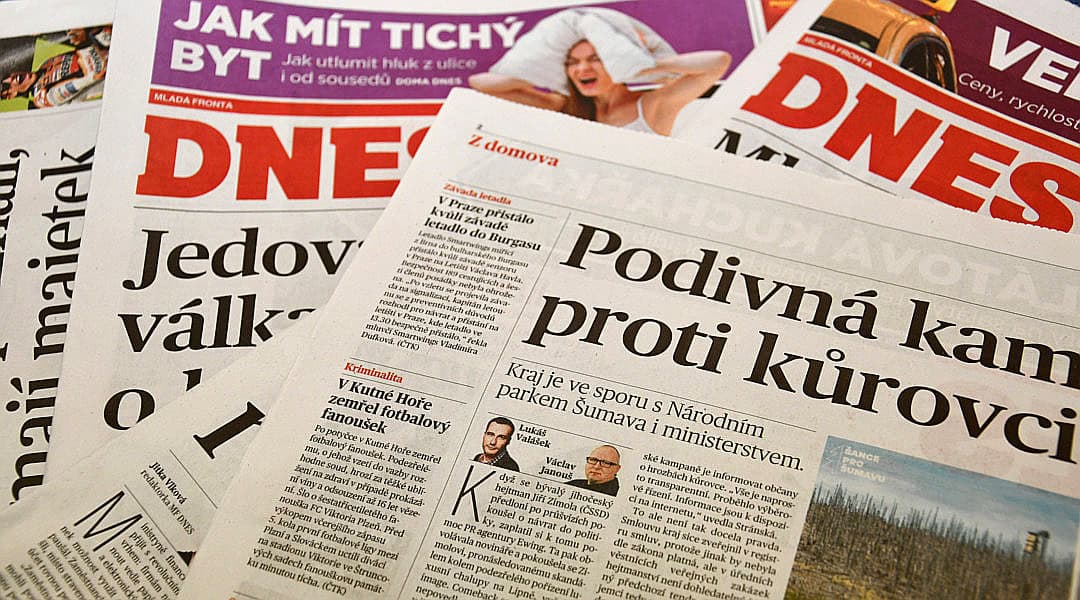PRAGUE/PARIS - While physical attacks on journalists remain the most visible form of press freedom violations, economic pressure is a much more serious and less obvious problem today, Reporters Without Borders (RSF) warns in its latest report. It provides an annual assessment of the state of media freedom in 180 countries around the world. The Czech Republic has improved seven places in this ranking year-on-year, and this year it was ranked tenth. The results contrast with Slovakia, which dropped nine places to 38th overall.
RSF points out that in addition to physical violence, journalists are increasingly facing financial threats that have a significant impact on the independence of the media. Pressure comes from advertisers and large media owners, as well as through a lack of state support for investigative journalism. "The economic vulnerability of the media is deepening, especially for smaller newsrooms, which are facing a revenue drain and a lack of resources for quality journalism," the report says.
According to the RSF, Norway has traditionally remained among the countries with the greatest freedom of the press, and this year it ranked first. Ireland, Denmark and Sweden also top the list. At the other end is Eritrea, where the media is completely controlled by the regime and independent journalism is virtually non-existent.
According to RSF experts, the improvement in the Czech Republic is the result of a more stable political atmosphere and fewer cases of intimidation of journalists compared to previous years. The public's growing trust in quality reporting, especially in the field of investigative journalism, is also positive. However, the organisation also warns that the structure of media ownership in the Czech Republic remains problematic, as much of the media is concentrated in the hands of a few influential businessmen.
The RSF is following a completely opposite trend in Slovakia, where the security situation for journalists has deteriorated and political pressure on independent media has increased. According to the organisation, the situation is complicated by controversial statements by some politicians and the spread of disinformation, which weakens public trust in the traditional media.
This year's RSF report also reminds us that worldwide press freedom is under pressure not only in authoritarian regimes, but also increasingly in democratic countries. In addition to physical attacks and economic threats, new forms of censorship are emerging, such as algorithmic filtering of content on social media or the misuse of legal tools to silence journalists who are inconvenient.
Reporters Without Borders has published its Media Freedom Index annually since 2002, assessing pluralism, media independence, the legislative framework, transparency and job security for journalists.
gnews.cz- GH



